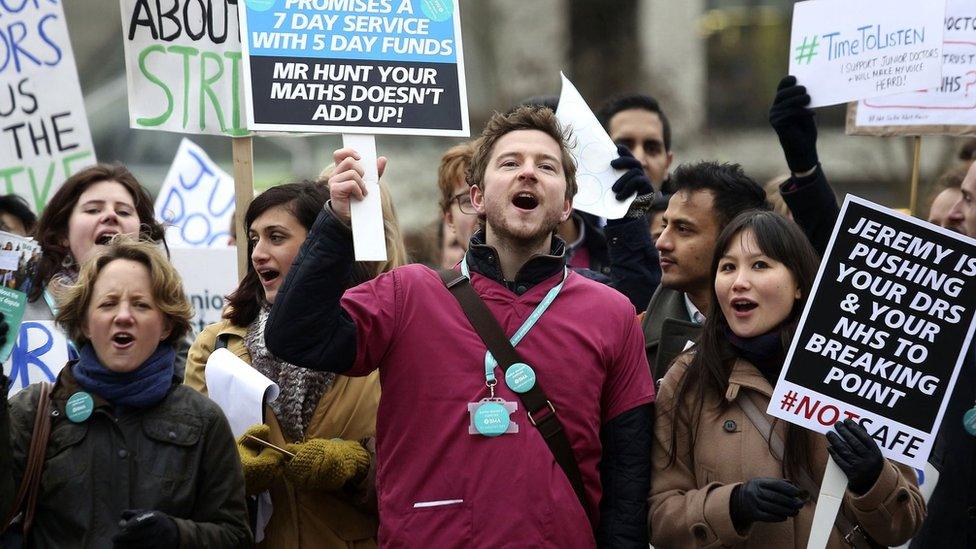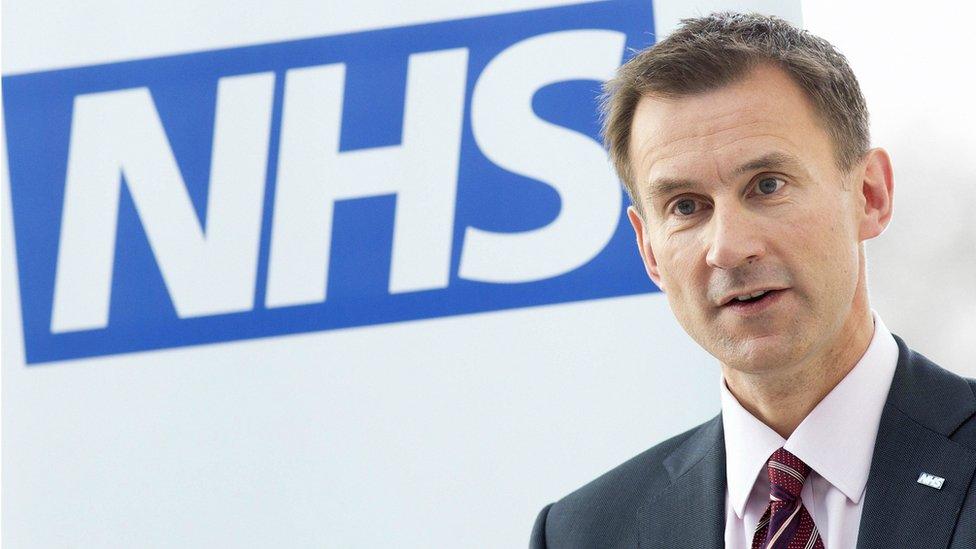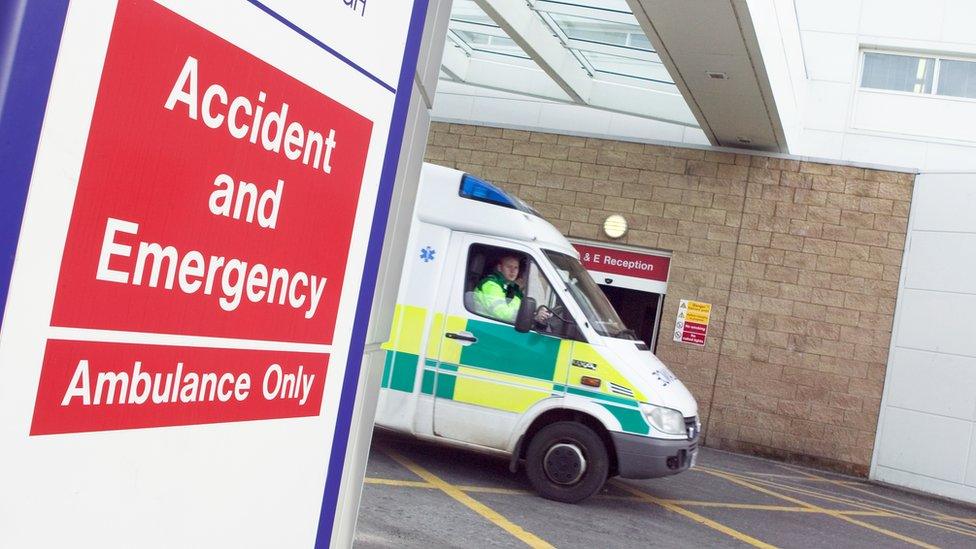Clock to avoid doctors' strike running down
- Published

The clock is running down - the time for talks has almost gone - and the first ever strike by a group of doctors in NHS history affecting emergencies is imminent.
There was a flurry of activity over the weekend as both sides, aware of the need to do everything possible to avoid the unprecedented action, fired off letters and press releases.
So how close did they come and what prospect is there of a long-term settlement of this rancorous dispute, which has turned into one of the most damaging episodes in the recent history of the medical profession in England?
It was late on Saturday night when news of the initiative, external, launched by Labour with support from the Liberal Democrats and SNP as well as a former Conservative health minister, emerged.
Junior doctors' row: The dispute explained
Will the dispute have a toxic legacy?
The story had been briefed to two Sunday newspapers. The cross-party letter to the Health Secretary, Jeremy Hunt, raised the idea of a phased approach to introducing the new junior doctors' contract in England.
Given the uncertainty and controversy over some of the detail, the authors argued, it might be best to bring in the contract at a limited number of hospitals and then subject those pilot schemes to independent evaluation before a national imposition.
Momentum was given to the initiative by the support of the Royal College of Surgeons, which had clearly been involved in discussions about the text of the letter.
Two other royal colleges added their backing the following morning.
To these leaders of the medical profession, deeply concerned about the prospect of an all-out doctors' strike, the plan seemed to offer a way out of the impasse.
Dismissed as opportunism
The reaction of the British Medical Association suggested a door might be ajar: "If the government were to agree to this, then the BMA would be prepared to meet with it and discuss the possibility of calling off Tuesday and Wednesday's action."
The BMA later acknowledged it was ready to talk to ministers about the idea without any preconditions, and if discussions made progress then calling off the strikes could be considered.
Government sources, though, did not take long to reject the opposition parties' letter as "opportunism".
Their argument was that the junior doctors' contract will be introduced in August for newly qualified doctors so in effect it will be phased in, during which time the impact on doctors can be assessed.
Health Education England, according to sources, has always argued that national contract implementation is required and that pilot schemes in a limited number of areas are not practical.
Mr Hunt, meanwhile, had made his own approach to the BMA through a letter, external to the council chair, Dr Mark Porter.
This, curiously, was put out on social media in the early hours of Sunday morning by the Department of Health press office. Twitter, as is increasingly the case for announcements in this dispute, was the chosen channel.
The health secretary told Dr Porter that the contract would be introduced but if the BMA called off the strikes he would be prepared to discuss a range of issues.
The agenda offered by Mr Hunt covered working to reduce doctors's maximum working hours and improving their work-life balance.
The aim, it appeared, was to address the wider concerns of junior doctors.
Mark Porter of the BMA called on the government to drop imposition of the contract and the strikes would be called off.
"I hope that even at this stage we can find a way to step back from this dispute, from the imposition of a distrusted contract, and from the consequent industrial action."
Strike seems inevitable
So a breakthrough has not been made and the all-out strikes appear almost inevitable.
Ministers seem determined to press on with imposing the new contract after what they consider to be significant government concessions and, they claim, the BMA's refusal to continue negotiations.
They see this as a public sector pay-and-conditions dispute where giving too much ground would encourage aggressive behaviour by other unions.
The BMA, for its part, believes it's simply representing members who are angry that the government chose to end talks and impose the contract. They deny their negotiating approach has been unreasonable.

Jeremy Hunt's letter to doctors' leader:

Jeremy Hunt has said he will impose the new contract
"The extreme action planned will be deeply worrying for patients, and place enormous additional strain on our NHS at a time of intense pressure.
"I therefore appeal to you one final time to call off strike action that will see doctors withdraw potentially life-saving care and to meet with me on Monday to discuss a better way forward."

Junior doctors seem set on pushing on with their campaign, convinced the new contract will not protect them from pressure to work excessive hours.
They resent the suggestion that contract changes are required to improve hospital services at weekends.
They say they are confident that all-out strikes will not harm patients because they have been reassured by consultant colleagues that their absence will be covered.
It's hard to see how an agreement will be shaped. Both sides will closely monitor public reaction to the action this week and whether some junior doctors ignore the strike call.
Then the BMA will decide how to continue its industrial action and whether to escalate it even further.
- Published25 April 2016

- Published24 April 2016

- Published23 April 2016
